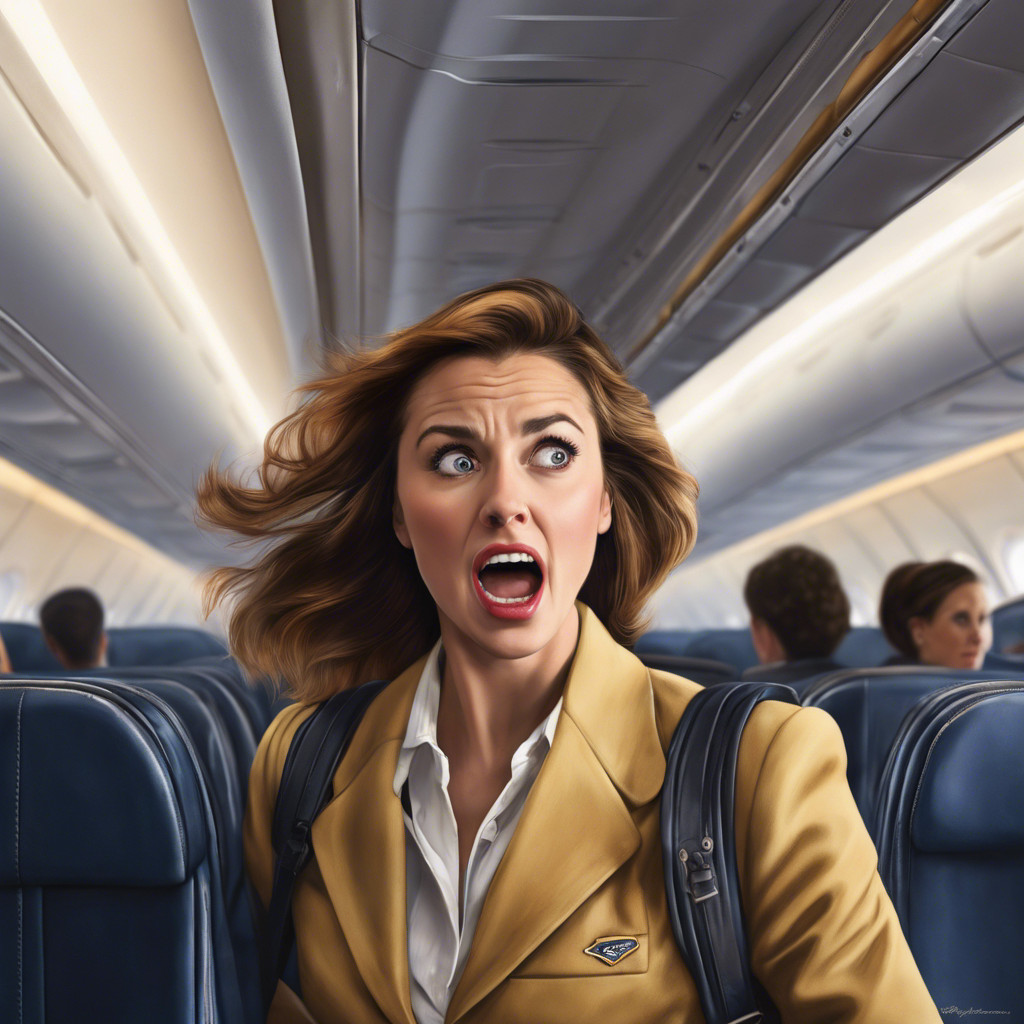are you one of the countless individuals who break out in a cold sweat and get a sinking feeling in the pit of your stomach at the mere thought of stepping onto an airplane? If so, you are certainly not alone. The fear of flying, also known as aviophobia, affects a significant portion of the population. Fortunately, there are effective strategies and coping mechanisms that can help you overcome this fear and build confidence in the skies.
Understanding the Fear:
The fear of flying can stem from a variety of psychological factors. For some, the fear may be related to a lack of control. Being confined to a metal tube, thousands of feet in the air, can feel incredibly unsettling for those who prefer to remain in control of their surroundings. Other factors that contribute to this fear include fear of heights (acrophobia), claustrophobia, a fear of crashing or dying, or a traumatic past experience related to flying.
Coping Strategies:
1. Knowledge is power:
One of the most effective ways to combat the fear of flying is to educate yourself about the safety of air travel. Research has consistently shown that flying is safer than driving, with a significantly lower accident rate. Familiarize yourself with the statistics and safety features of modern aircraft, and remind yourself that flying is a routine activity for millions of people every day.
2. Breathing and relaxation techniques:
Controlled breathing and relaxation exercises can help alleviate anxiety during the flight. Deep breathing exercises, such as inhaling slowly through the nose and exhaling through the mouth, can relax your body and calm your mind. Additionally, practicing progressive muscle relaxation, where you tense and then release each muscle group in your body, can restore a sense of calmness.
3. Distract yourself:
Engaging in activities that divert your attention can be highly effective in combating fear. Bring a book, puzzle, or your favorite music to keep your mind occupied during the flight. Watching an in-flight movie or using a handheld device for entertainment can also help shift your focus away from the fear of flying.
4. Understand turbulence:
Turbulence is a common trigger for anxiety during flights. Knowing that turbulence is a normal and safe part of air travel can help you combat this fear. Think of turbulence as bumps in the road while driving. Pilots are well-trained to handle turbulence, and modern aircraft are designed to withstand it. Trust in the expertise of the pilot and crew, and remind yourself that turbulence does not mean the plane is in danger.
5. Seek professional help:
If your fear of flying becomes debilitating and starts interfering with your personal or professional life, it may be beneficial to seek professional help. Cognitive-behavioral therapy (CBT) has shown great success in treating specific phobias, including the fear of flying. A therapist can help you identify and challenge your negative thoughts and beliefs surrounding flying, gradually exposing you to the fear in controlled environments. Hypnotherapy is also an effective way of treating this fear, especially if it relates to childhood, or even past life, memories. Click HERE to book one of our experienced online hypnotherapists.
Practical Tips:
1. Choose the right seat:
Choosing the right seat can help alleviate anxiety during the flight. Opt for a seat near the wing, as this area experiences the least amount of movement during turbulence. Additionally, an aisle seat may provide a greater sense of space and reduce feelings of claustrophobia.
2. Inform the crew:
If you feel comfortable doing so, inform the flight attendants about your fear of flying. They are trained to handle nervous passengers and may offer reassurance or helpful tips throughout the flight.
3. Prepare ahead of time:
Arriving at the airport well-rested and prepared can make a significant difference in managing fear. Dress comfortably in layers, pack familiar items or calming essentials, and bring snacks or water to stay hydrated. Being prepared will help you feel more relaxed and in control.
Conclusion:
Conquering the fear of flying is possible with the right strategies and mindset. By understanding the psychological factors behind the fear, implementing effective coping mechanisms, and taking practical steps to build confidence, you can overcome your fear and experience the freedom and joy of air travel. Remember, you are capable of conquering this fear, and with each flight, your confidence will soar higher and higher. Bon voyage!

